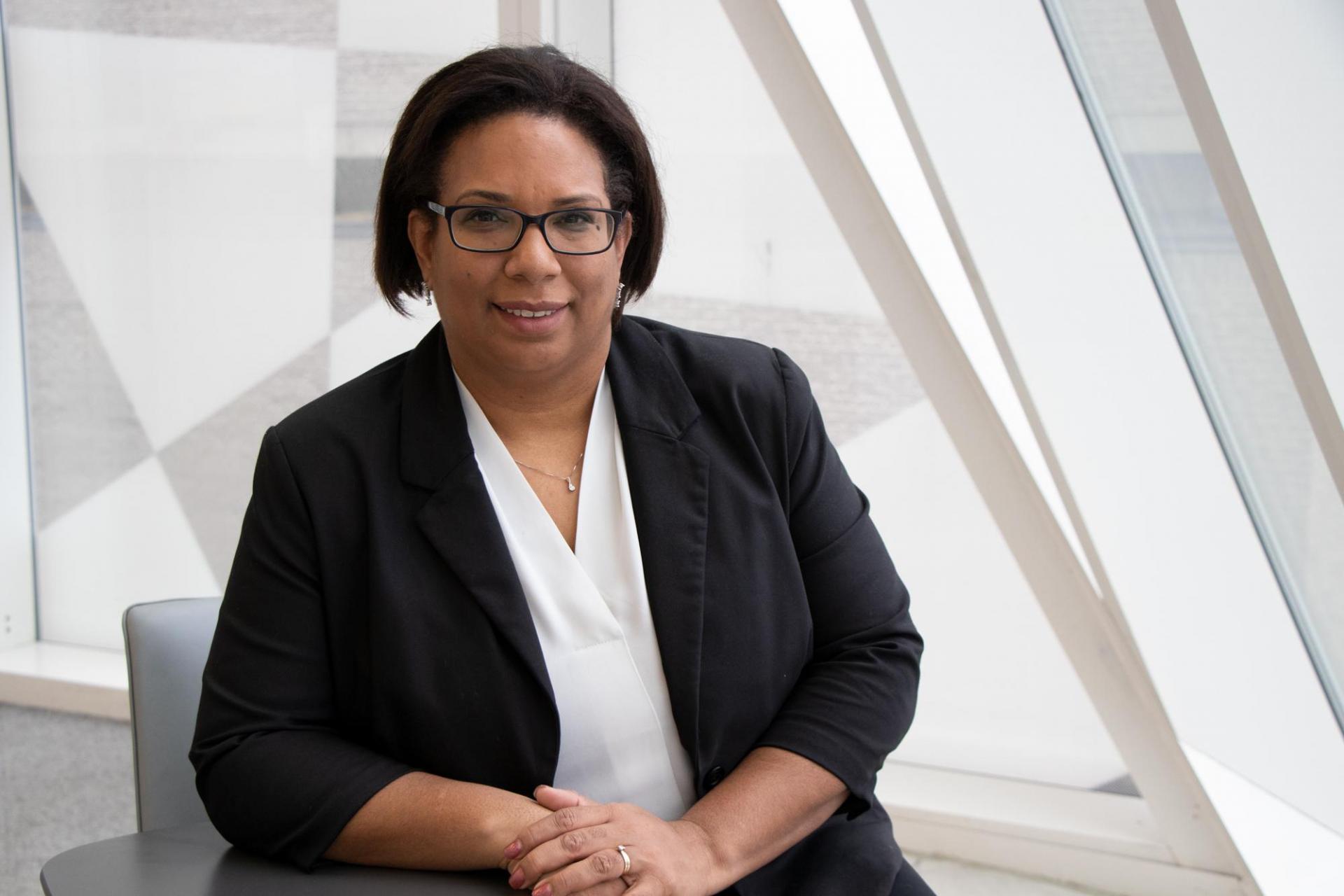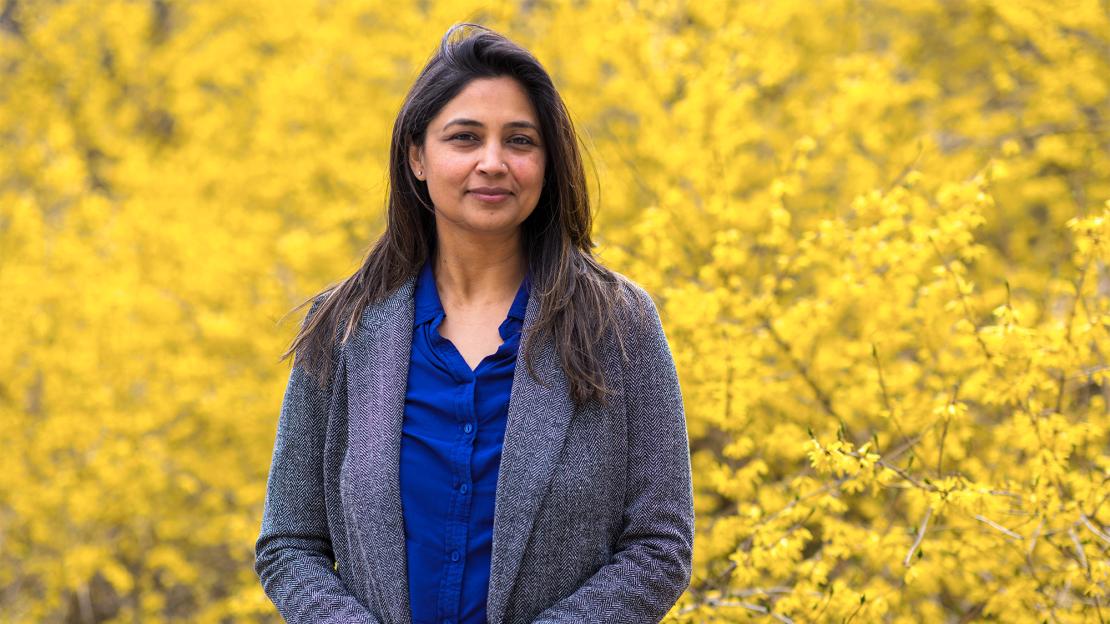Khadija Uddin is U of T Scarborough’s first student crisis response co-ordinator — a role designed to de-escalate and reduce police presence when students experience a mental health crisis.
“My guiding principle is to ensure students’ wellbeing. I’m there to maintain the dignity of the individual, their independence and their sense of agency,” Uddin says.
Uddin has spent 20 years helping students with mental health needs at different universities, including 11 years as a disability consultant at U of T (at the Scarborough and St. George campuses) and four years as a team lead with U of T Scarborough’s accessibility services. She says the main difference in her new role is mobility; instead of helping from behind a desk, she now travels directly to those who need her most.
Uddin, dressed in plain clothes, accompanies a special constable from the campus safety office to crisis scenes. Once the constable deems the environment safe, Uddin takes over. She quickly assesses what the student is experiencing and what kind of help they need, be it a trip to the hospital in an unmarked campus safety vehicle or a connection to a campus or community resource.
“All that matters in that moment is: How do you make sure this student stays safe and how do you get them on the path of care?” Uddin says.
When the crisis is de-escalated and the student is stabilized, their case is transferred to one of two dedicated staff members or a community service. Both the student welfare case co-ordinator, Chanda Chandalala, and the student crisis response and academic progress case co-ordinator, Kashfia Iqbal, guide students through next steps and help them build a support system for ongoing care.
"When it comes to supporting a student who is struggling, it's about creating ease of access to student services and simplifying administrative processes,” Uddin says.
That same goal drives the student welfare committee, which Uddin joins for biweekly meetings. After a student struggling with their mental health consents to having their case discussed, directors of all major student services meet to determine how each department can best support their individual needs.
My guiding principle is to ensure students’ wellbeing.
Uddin’s role includes educating students, faculty and staff on crisis, from warning signs to steps to take in an emergency, along with the mental health resources available on campus (herself included). She’s also augmenting training in the campus safety office on how to identify and respond to mental health cases. Likewise, the constables are training her in safety protocols.
“The education goes both ways. I've learned so much from them already in the short time that I've been here,” she says.
Another major part of her work is consultation. Professors, for example, can meet with Uddin on whether a student’s behavior indicates they may be nearing a crisis, and what to do next.
Tanya Poppleton first had the idea for the role when interviewing for her own position as director of campus safety. She was asked what “defund the police” — a slogan for the movement to reallocate police funding to social services — means to her in a university setting. She said it means rethinking policing.
“We’re finding ways to do our work with students, specifically students in crisis, differently so that there's no additional shame to whatever they're experiencing,” Poppleton says. “That shame can be uniformed staff, which adds a new layer of complexity to what a student is dealing with.”

The Scarborough Campus Students’ Union (SCSU) has also lobbied for the school to add mental health professionals to support students in crisis. Sarah Abdillahi, president of the SCSU, says Uddin’s work will help “cultivate a community of care to better support the needs of BIPOC students."
"This is a big first step in re-imagining campus safety and what a police-free U of T could be,” Abdillahi says.
Supporting BIPOC students is a key goal for Uddin. As someone who identifies as south Asian and Muslim, she strives to destigmatize mental health in her own and other BIPOC communities. She hopes her role will make it easier for students, especially those who feel unsafe around police, to seek help.
“For many people, it can be very triggering and upsetting to encounter police when they're in their most vulnerable state,” Uddin says.
A lifelong Durham resident, Uddin supports her own mental health with her favourite activities, namely hiking Toronto’s trails and being in nature. She grew up around family and friends living with mental health challenges, which she says steered her to where she is today.
“I'm super passionate about mental health. I always have been, since I was a child, and my work all along has been spent supporting students with mental health needs,” she says. “I look forward to being able to continue supporting student mental health and developing capacity within our staff and faculty.”
